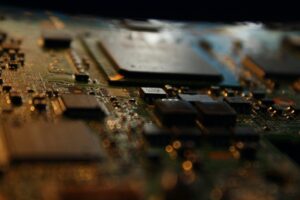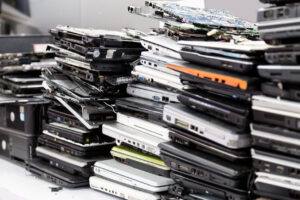From hastily-typed passwords on computer sticky notes to completed forms with medical or financial information, companies worldwide are privy to sensitive information that could pose a huge security risk for their clients if breached. Secure data destruction services provide a way for that data to get out of the system without getting into the wrong hands. In this guide, we’ll go over everything you need to know about secure data destruction, including which industries require secure data destruction and the standards for secure data destruction software and technologies.
What is the Main Goal of Secure Data Destruction?
There was a time when “secure data destruction” referred to sending paperwork through a shredder when you were done with it. But in today’s high-tech world, shredding physical documents isn’t enough to securely destroy data. Today, a secure data destruction company needs to be a lot more high-tech. Secure data destruction standards require companies to make hard drives completely unrecoverable so that the information once stored on them is inaccessible.
What Industries Require Secure Data Destruction?
Of course, not all industries need their data destroyed at such a high level. If you work as a lifestyle blogger from the comfort of your own home, for example, you probably don’t require professional data destruction services. But for many industries, secure data destruction is the only way to provide total security to your clients or for your unique ideas. Here are seven major industries that benefit from secure data destruction.
#1: Medical
Certain medical information is protected under the HIPAA security rule of 1996. This means that if you work in any medical facility, including hospitals, psychiatric facilities, optometrist offices, and more, protecting client data isn’t just the right thing to do; it’s the law. Failing to do so could result in thousands of dollars in fines, loss of licenses, and even jail time. While many medical facilities have plans in place to keep data secure, disposing of old computers or hard drives can be a prime way to leak data. Secure data destruction ensures your facility doesn’t have to hold onto outdated computers out of fear of what would happen if those computers fell into the wrong hands.
#2: Education
Just like medical information, educational information is protected by law. Violating FERPA regulations is a fireable offense at schools and universities. That’s because schools will lose their federal funding if they violate FERPA regulations. From old school records to addresses and even social security numbers, schools possess critical personal information regarding students, faculty, and staff. So, if you work in an educational facility or with data from educational facilities, secure data destruction is a must.
#3: Law
Law firms are privy to a variety of personal information, from their clients’ contact information to personal statements and occasionally medical data, educational data, or information regarding children. Some of this data might be protected by law, while other data could harm your clients if it got out. Either way, securely destroying the data is the best way to ensure your clients’ safety and privacy. Additionally, keeping your clients’ data secure is imperative if you want to uphold your reputation as a law firm. Clients won’t want to come to you for legal advice if they’re worried about someone getting ahold of their personal data.
#4: Finance
There are few things people are more private about than their finances. Whether it’s their personal finances, shareholdings, or financial plans, neither individuals nor businesses want to disclose the state of their money. There are also many financial protection laws in place to ensure banks, stockbrokers, financial consultants, and others in the finance industry keep their clients’ financial data under lock and key.
#5: Government
Government officials continually deal with classified information that they don’t want to reach their competitors or the general public. Depending on the information, data leaks could even constitute dangerous security risks. Government data leaks also have can also impact millions, making it especially important that this data is securely disposed of when it’s no longer used.
#6: Commerce
Whether you’re an e-Commerce company or an exclusively brick-and-mortar brand, there’s a good chance that you have industry trade secrets you don’t want your competitors to know. Whether you’re protecting upcoming plans for advertising, new product launches, or new business models you’re planning to try out, the last thing you want is for your competition — or even your customers — to get that information before you’re ready to share. You may also have customer mailing lists you need to keep protected or lists of phone numbers or previous purchases that you need to keep secure.
#7: Manufacturing
Manufacturers are often privy to trade secrets, confidential information, and classified information. If you’ve ever been asked to sign an NDA as part of your manufacturing job, then you know the importance of keeping this information from getting out. Secure data destruction ensures that information isn’t disclosed even after you’ve completed your tasks.
How Does Data Get Destroyed?
Data can be destroyed in three major ways: through clearing, purging, or destroying. Clearing and purging both eliminate the data from the hard drive. Destroying eliminates the technology, from hard drives to processors, in a way that prevents them from ever being repaired. Most people consider destroying the devices the most secure way to ensure data is inaccessible.
Learn More About Secure Data Destruction Services
If you’re in one of the major industries that could benefit from secure data destruction, it’s imperative you learn more about how data destruction services can protect your information and give you peace of mind. Contact Cobalt to learn more about our data destruction services and get started today.





